The Director of L-CAP is Elena Cagnoli Fiecconi (email: e.fiecconi@ucl.ac.uk). Queries relating to L-CAP can be addressed to the Director.
MEMBERS
(available for doctoral supervision in the area of ancient philosophy)

Peter Adamson
Peter Adamson is Professor of Ancient and Medieval Philosophy in the Philosophy Department at KCL and at the Ludwig Maximilian University of Munich. His primary areas of interest are late ancient philosophy and Arabic philosophy. His two monographs deal with the Arabic version of Plotinus, the so-called ‘Theology of Aristotle,’ and with al-Kindi (d. after 870 AD). He has devoted articles to several figures of the Greek tradition: Aristotle, Plotinus, and Porphyry; and numerous philosophers of the Arabic tradition, including al-Kindi, Abu Bakr al-Razi, Yahya Ibn ‘Adi, Miskawayh, Avicenna, and Averroes. He has also edited and co-edited numerous books, including The Cambridge Companion to Arabic Philosophy, three further volumes on philosophy in the Islamic world for the Warburg Institute, several volumes for the Institute of Classical Studies including Philosophical Themes in Galen, and ‘Interpreting Avicenna: Critical Essays’ for Cambridge University Press. Finally, he is the host of the History of Philosophy podcast which was launched at King’s in 2010 and is the basis for the History of Philosophy Without Any Gaps book series, published by Oxford University Press. (NOTE: Peter is affiliated with KCL on a 0.2 basis and spends most of his time at the LMU in Munich. He is thus available to L-CAP students only for occasional secondary supervising.)

Simona Aimar
Simona Aimar is Lecturer in Philosophy in the Department of Philosophy at UCL. She has been a visiting scholar at NYU, the Harvard Centre for Hellenic Studies, and the Seeger Princeton Centre for Hellenic Studies. Her work focuses on metaphysics and semantics, in both ancient and contemporary debates. At the moment, her biggest project is a reconstruction of Aristotle’s metaphysics of modality (notions like necessity and possibility). Further projects include the metaphysics of causation, causal claims, and Aristotle’s notion of technē.

Joachim Aufderheide
Joachim Aufderheide is Reader in the Philosophy Department at KCL. He is interested in a range of topics, but most of them relate to The Good Life. Two questions in particular hold his attention: What role does pleasure play in a good life? And what contribution does theoretical philosophy make to a life lived well? While he tries to answer these questions by looking at ancient Greek texts (mostly Plato and Aristotle), he also likes to trace these questions through history up to contemporary answers. The research on these topics informs his book Aristotle: Nicomachean Ethics X (2020). Most recently, he has discovered a deep liking for Indian philosophy and studies Sanskrit in order to access the wealth of texts.
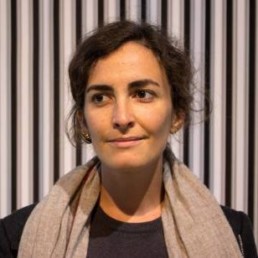
Elena Cagnoli Fiecconi
Elena Cagnoli Fiecconi is Lecturer in Ancient Philosophy in the Department of Greek and Latin at UCL. Her research focuses on Aristotle’s ethics, psychology, and biology, with an eye to the relationship between the three disciplines. She has an interest in virtue ethics and moral psychology in other ancient authors and she enjoys exploring the relevance of ancient views for contemporary philosophy of mind and ethics.

Sophia Connell
Sophia M. Connell is Senior Lecturer in Philosophy in the Philosophy Department at Birkbeck. Her research interests centre on Aristotelian topics and political and ethical philosophy. She works broadly to consolidate and improve philosophical engagement with Aristotle’s biological corpus. In 2016, her book Aristotle on Female Animals was published with Cambridge University Press. She has recently published work on Aristotle’s nutritive soul (Phronesis 2020 and in Nutrition and Nutritive Soul in Aristotle and Aristotelianism, ed. Lo Presti, Korobili, 2020) and is developing a series of papers on the bodily basis for intellect in Aristotle’s philosophy. She is the editor of The Cambridge Companion to Aristotle’s Biology and The Critical Guide to Aristotle’s Parts of Animals (both forthcoming with Cambridge) and is writing a commentary and translation of Aristotle’s Generation of Animals for the Clarendon Aristotle series. She has also published on contemporary ethics and Plato’s political philosophy. She is Associate Editor (Ancient Philosophy) for the British Journal for the History of Philosophy.
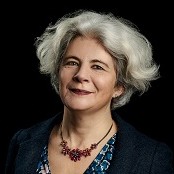
Catharine Edwards
Catharine Edwards is Professor of Classics and Ancient History in the Department of History, Classics and Archaeology at Birkbeck. She works on Roman cultural history and Latin prose literature. She has a particular interest in the Younger Seneca on whose writing she has written a number of articles, including ‘Self-scrutiny and self-transformation in Seneca’s letters’ (Greece & Rome 1997) and ‘The epistolographic self: the role of the individual in Seneca’s letters’ (in M. Niehoff and J. Levinson (eds) Self, Self-Fashioning and Individuality in Late Antiquity; Mohr Siebeck, 2019). Her edition of Selected Letters of Seneca was published in the Cambridge Greek and Latin Classics series in 2019. She is on the editorial board of Ciceroniana online: a journal of Roman Thought.

Liz Gloyn
Liz Gloyn is Reader in Latin Language and Literature in the Classics Department at Royal Holloway. Dr Gloyn’s research focuses on the intersections between Latin literature, ancient philosophy and gender studies. Her main philosophical interests are in Stoicism, particularly in the Roman period. Her core focus is on Seneca the younger and his approach to Stoicism, and she is the author of The Ethics of the Family in Seneca (2017). She is also interested in ideas about leadership in Stoicism.

Andrew Gregory
Andrew Gregory is Professor of History and Philosophy of Science in the Science and Technology Studies Department at UCL. He is interested in early Greek philosophy and in particular in how the early Greek philosophers conceived of, investigated and understood cosmos and phusis (nature). He is also interested in re-evaluating the criteria we use to establish which fragments of early Greek thought we accept as genuine and the criteria we use for assessing the genuine fragments. He is the author of Plato’s Philosophy of Science (Duckworth, 2000), Ancient Greek Cosmogony (Bristol Classical Press, 2007), Plato: Timaeus and Critias (OUP, 2008), The Presocratics and the Supernatural (Bloomsbury, 2013), Anaximander: A Re-Assessment (Bloomsbury, 2016) and Early Greek Philosophies of Nature (Bloomsbury, 2020).

Mark Kalderon
Mark Eli Kalderon is Professor of Philosophy in the Philosophy Department at UCL and former editor of the Proceedings of the Aristotelian Society. His most recent research has focused on the metaphysics of sense and sensibilia. Relatedly, Professor Kalderon has a specific interest in ancient and scholastic theories of perception. He is the author of Form without Matter: Empedocles and Aristotle on Color Perception (2015) and has written on Augustinian and Neoplatonic theories of perception.

Fiona Leigh
Fiona Leigh is Associate Professor in Philosophy at UCL, Director of the Keeling Centre for Ancient Philosophy at UCL, and Associate Editor for the journal MIND. Her research mainly focuses on Plato’s metaphysics, epistemology, and philosophy of mind. Recently she has written on various topics from Plato’s Sophist, on self-knowledge in Plato’s early dialogues, and the analysis of mimesis in book X of Plato’s Republic. She has edited Self-Knowledge in Ancient Philosophy (OUP, 2020), Themes in Plato, Aristotle, and Hellenistic Philosophy: Keeling Lectures 2011-18, Bulletin of the Institute of Classical Studies Supplement 141 (UoL Press, 2020), and The Eudemian Ethics on the Voluntary, Friendship, and Luck (Brill, 2012). Fiona is co-editing, with Margaret Hampson, Psychology and Value in Ancient Thought (OUP, forthcoming, expected 2021). In 2013, she was the recipient of a Mind Research Fellowship.

Miriam Leonard
Miriam Leonard is Professor of Greek Literature and its Reception in the Department of Greek and Latin at UCL. Her research explores the intellectual history of classics in modern European thought from the eighteenth century to the present. She has written extensively about the reception of ancient philosophy in authors such as Kant, Hegel, Nietzsche, Freud, Arendt, Derrida and Irigaray. Her monographs Athens in Paris: Ancient Greece and the Political in Post-War French Thought (OUP, 2005) and Socrates and the Jews: Hellenism and Hebraism from Moses Mendelssohn to Sigmund Freud (University of Chicago Press, 2012) explored the role of Socrates in the development of modern ethical and political thought. Her short book How to Read Ancient Philosophy (Granta, 2008) was an attempt to use close reading of key passages to introduce Greco-Roman philosophy to a wider audience.

Karen O'Brien-Kop
Karen O’Brien-Kop is Lecturer in Asian Religions at KCL. She researches South Asian Sanskrit texts and culture on philosophy of mind, meditation, and mind-body practices from the 1st to 6th centuries CE – exploring the early interconnections of Hinduism and Buddhism in relation to ontology, dualism, embodiment, consciousness and cognition. Specifically her textual research focuses on the Sāmkhya and Yoga treatises in early Hindu philosophy, and Sarvāstivāda Abhidharma and Yogācāra treatises in early Buddhist philosophy. She co-convenes the Spalding Symposium on Indian Religions and is a co-chair of the Indian and Chinese Religions Compared Unit at the American Academy of Religion. Her books include Rethinking ‘Classical Yoga’ and Buddhism: Meditation, Metaphors and Materiality (Bloomsbury 2021) and The Philosophy of the Yogasūtra: An Introduction for the Bloomsbury Introduction to World Philosophies Series (Bloomsbury 2023).

Daniel Orrells
Daniel Orrells is Professor of Ancient Literature and its Reception in the Classics Department at KCL. Daniel works on the history of the reception of antiquity in modern intellectual and cultural history. He is especially interested in how modern histories of gender, sexuality, race and empire and aesthetics have shaped the continuing debates about the construction and organisation of knowledge about the ancient world. His work has focussed on key figures in the modern classical tradition such as Vico, Winckelmann, Pater, Freud, Derrida and Mudimbe, reflecting his interest in the contested legacies of classical antiquity for European and sub-Saharan African philosophical thinking. He is very happy to supervise PhD dissertations that examine receptions of ancient philosophy, literature and culture in modern philosophical and intellectual history. His publications include ‘Pater and Nettleship: a Platonic education and the politics of disciplinarity’ (in Martindale, Evangelista and Prettejohn (eds), Pater the Classicist 2017), The Mudimbe Reader (edited with P-P. Fraiture 2016), Sex: Antiquity and its Legacy (2015) and ‘Derrida’s impression of Gradiva: archive fever and antiquity’ (in Leonard (ed.), Derrida and Antiquity 2010).
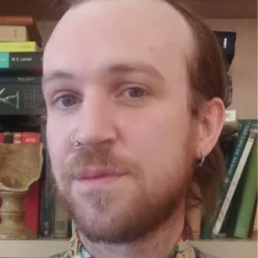
David Preston
David Preston is Lecturer in Philosophy in the Department of Politics, International Relations, and Philosophy at Royal Holloway, University of London. Before completing his PhD at Royal Holloway (2017), he studied Classics and Philosophy and Trinity College, Dublin (BA, 2010) and the Reception of the Classical World at UCL (MA, 2012). His research primarily focuses on the interaction between ancient philosophy and ancient comedy, with a particular focus on Plato and Middle Comedy. He has acted as Deputy Director for the UCL Summer School in Ancient Philosophy (on which he also teaches a module on Ancient Metaphysics) since 2016. Outside of Ancient Philosophy, he also works on aesthetics and the philosophy of laughter. He always enjoys hearing from people with similar interests and welcomes you to email him (Dave.Preston@rhul.ac.uk).

John Sellars
John Sellars is Reader in Philosophy in the Department of Politics, International Relations and Philosophy at Royal Holloway. His research is concentrated on Stoicism and the subsequent reception of Stoicism in the history of philosophy. He has written six books dealing with ancient philosophy, the most recent of which is Marcus Aurelius (Routledge 2021). He is Associate Editor of the Ancient Commentators on Aristotle project, based at King’s College London, and one of the founder members of Modern Stoicism, the organization that runs Stoic Week.
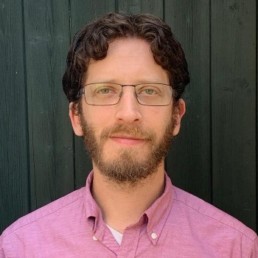
Shaul Tor
Shaul Tor is Reader in Ancient Philosophy in the Departments of Classics and Philosophy at KCL. He has broad interests in ancient philosophy and thought. His research to date has focused on Early Greek (‘Presocratic’) Philosophy, the interrelations between philosophy and religion in antiquity, and ancient Pyrrhonian scepticism. His work is often interdisciplinary, combining logical and philological analysis, cultural and religious history and literary criticism. He is the author of Mortal and Divine in Early Greek Epistemology (2017) and the recipient of a Philip Leverhulme Prize (2018).
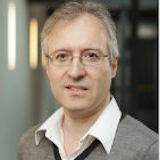
Raphael Woolf
Raphael Woolf is Professor of Philosophy in the Philosophy Department at KCL. After undergraduate study in Classics at Cambridge, he received his MPhil (1993) and PhD (1997) in Philosophy at King’s. His main interests are in ancient Greek and Roman Philosophy. Recent work includes a monograph on Plato’s Charmides and the edited volume Cicero’s De Officiis: A Critical Guide (both 2023). He is author of Cicero: The Philosophy of a Roman Sceptic (2015) and co-editor (with Verity Harte) of Rereading Ancient Philosophy: Old Chestnuts and Sacred Cows (2017). He has translated Aristotle’s Eudemian Ethics (with Brad Inwood, 2013), and Cicero’s De Finibus (‘On Moral Ends’, edited by Julia Annas, 2001), and has published articles on Plato, Aristotle and Hellenistic philosophy. Before returning to King’s in 2006, he was Assistant then Associate Professor of Philosophy at Harvard University, and was visiting Professor of Philosophy at Yale University in Fall 2012.
ASSOCIATE MEMBERS

Merrick Anderson
Merrick Anderson is a British Academy Postdoctoral Fellow and former Keeling Research Fellow at UCL. His research exploits detailed philosophical and historical analyses to explore the ethics of Plato and the earlier sophists. Currently, he is working on two different projects. The first investigates the metaphysical nature of the Platonic virtues of the Republic to better understand how they operate and contribute to the happy human life. The second focuses on Plato’s ‘philosophical anthropology’ – those passages where he turns to an earlier ‘state of nature’ to draw conclusions about contemporary moral and political problems. Merrick will next turn to a book project on ancient authors’ theorizing about justice from Hesiod to Empedocles. His publications include ‘Thrasymachus’ Sophistic account of justice in Republic I’ (Ancient Philosophy 2016), ‘What are the wages of justice? Rethinking Plato’s division of goods’ (Phronesis 2019), ‘Immorality or immortality? An argument for virtue’ (Rhetorica 2019), ‘Legein to what end?’ (Australasian Philosophical Review 2020).

Piotr Ashwin-Siejkowski
Piotr Ashwin-Siejkowski is Research Fellow in the Theology and Religious Studies Department at KCL. He earned his PhD in Ancient Philosophy (with a thesis on Clement of Alexandria and Plotinus) at the University of Warsaw. His research focuses on early Alexandrian philosophical traditions and includes Philo of Alexandria, Clement of Alexandria and some Coptic documents from the Nag Hammadi (Valentinus and his followers). Among his monographs is Clement of Alexandria on Trial. The Evidence of ‘Heresy’ from Photius’ Bibliotheca (2010). His recent publications include: ‘Plato in Bad Company? Plato’s Republic (588b-589b) in the Nag Hammadi Collection: A Re-Examination of Its Background’ (Gnosis: the Journal of Gnostic Studies 2020). He is currently working on the monograph: Valentinus’ Legacy: Polyphony of Voices Within a Philosophical School.
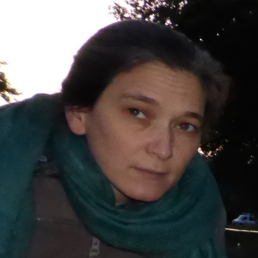
Amber Carpenter
Amber Carpenter is Visiting Professor at King’s College London. She works in ancient Greek and classical Indian philosophy, with a topical focus on the metaphysics, epistemology and moral psychology underpinning Plato’s ethics and Indian Buddhist ethics. While publishing on each philosophical tradition separately (including Indian Buddhist Philosophy, 2014), she is keenly interested in the mutual illumination gained from bringing the thought of each to bear on the other (e.g., ‘Ethics of Atomism‘ (BJHP), and ‘Ethics of Substance’ (PASS)). Her co-edited volume, Crossing the Stream, Leaving the Cave—the fruit of international Buddhist-Platonist collaboration—appears in May 2024. She is interested in how exploration of ancient ideas can expand and correct unwitting parochialism, and offer new angles for understanding our current situation and options, both in the logical space of philosophical inquiry and in the dynamic three-dimensional space of everyday life.

Michael Coxhead
Mike Coxhead is Visiting Research Fellow in the Philosophy Department at King’s College London. Mike is interested in intuitions about the value of certain epistemic states (such as true belief, knowledge, and understanding) that have become a corner-stone of Anglo-American epistemology. What makes these putative epistemic goods valuable? What is the relationship between different epistemic values? And what role, if any, does virtue have to play in an explanation of epistemic value? Mike’s research examines Aristotle’s contributions to these questions, with an eye to putting Aristotle in dialogue with contemporary epistemological debates. Mike also manages a programme of philosophy courses in London prisons, and acts as a Special Adviser for the charity, Philosophy in Prison. His publications include: ‘A close examination of the pseudo-Aristotelian Mechanical Problems: the homology between mechanics and poetry as technē’ (Studies in History and Philosophy of Science 2012); ‘Imagery and argument in Plato’s cave’ (in McCabe and Trépanier (eds), Rereading the Republic, Edinburgh University Press, forthcoming); ‘Philosophy education in the prison context’ (special issue of the Journal of Prison Education and Reentry 2021).
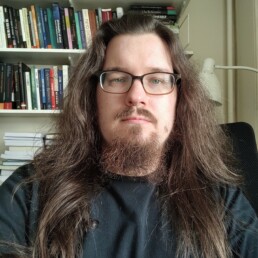
Daniel Ferguson
Daniel Ferguson is Newton International Fellow in the Philosophy Department at KCL. He completed his PhD in Classics and Philosophy at Yale University. While at KCL, Dan is thinking mainly about Aristotle’s account of virtue and methodology in the Eudemian Ethics. His recent publications include “The Best is the Telos: An Argument in Eudemian Ethics 1.8” (Phronesis 2022), “The ‘Belonging to a Kind’ Reading of the Eudemian Ergon Argument” (Ancient Philosophy 2022), and “Self-Knowledge in the Eye-Soul Analogy of the Alcibiades” (Phronesis 2019).

Tania Gergel
Tania Gergel is a Wellcome Trust Senior Research Fellow at the Institute of Psychiatry, Psychology and Neuroscience at KCL. After a PhD and lectureship at KCL, specialising in ancient philosophy, she returned to academia in 2011 following a long career break, and became involved in Philosophy of Medicine and Psychiatry. Her interests have always been interdisciplinary: as an Ancient Philosopher, her work focused on understanding the interrelationship of literary structures and philosophical argument. Her current work, as part of the ‘Mental Health and Justice’ project, has a particular focus on decision-making, personal identity and phenomenology, which all draw on her classical roots. Her publications include ‘Rhetoric and Reason: Structures of Argument in Plato’s Crito’ (2000), a translation and commentary of The Greek Sophists, with John Dillon (2003), and more recent publications focusing on mental health ethics and law.
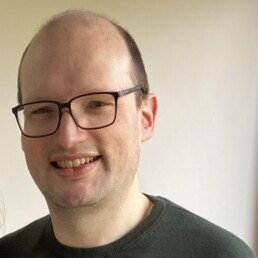
Tom Mackenzie
Tom Mackenzie is Honorary Research Fellow in the Department of Greek and Latin at UCL. He completed his BA (2009) and MSt (2010) in Classics at Oxford. After two years as an English teacher on the Teach First programme, his unquenched curiosity for ancient literature and philosophy led him to return to Oxford to complete a DPhil (2015) on Xenophanes, Parmenides and Empedocles. After a year teaching at Cambridge, from 2016-2020 he was A. G. Leventis Research Fellow in Greek Culture at UCL, a position which allowed him to develop his thesis into the monograph, Poetry and Poetics in the Presocratic Philosophers (CUP 2021) and to publish on such varied topics as the Presocratics, Sophocles and Virgil. He has now returned to school teaching and is trying to learn Sanskrit, but still finds time to produce the odd article on whatever topics in Greek and Latin culture take his fancy.

Katharine O'Reilly
Katharine O’Reilly is Visiting Research Fellow in the Department of Philosophy at King’s College London, and Assistant Professor of Philosophy at Toronto Metropolitan University. Katharine studied ancient philosophy at the University of Toronto, King’s College London, and the University of Oxford (DPhil, 2019), before joining King’s College London as Lecturer with a cross-appointment between Philosophy and Classics in 2019. She is a specialist in Ancient Greek & Roman Philosophy, particularly ancient moral psychology. Her work is focused on prudentialism, memory, anticipation, pain and pleasure. She recently co-editing a volume on Ancient Women Philosophers (2023) with Caterina Pellò (University of Geneva). In 2024 she is the local organiser of the fifth Canadian Colloquium for Ancient Philosophy. She sits on the Management Committee of the British Society for the History of Philosophy, the Executive Committee of the Ancient Philosophy Society, is a Research Associate for the Society for Women of Ideas, and is a Consulting Editor for De Gruyter’s Women Philosophers Heritage Collection.
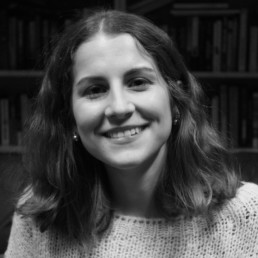
Caterina Pellò
Caterina Pellò is Honorary Fellow in Greek in the Department of Greek and Latin at UCL, and Teaching Associate in Philosophy at Nottingham. She completed her PhD at the University of Cambridge. She was a Postdoctoral Researcher at Humboldt University Berlin, an Associate Lecturer in St Andrews, and a Visiting Fellow at the University of Notre Dame and the Harvard Centre of Hellenic Studies. Her primary research areas are Presocratic philosophy and the study of women in the history of philosophy. Her PhD thesis focused on the Pythagorean women. Her current project focuses on early Greek philosophy of life and death. She is especially interested in Presocratic theories of the beginning of life and the relationship between living things, the interactions between ancient Greek philosophy and medicine, and the resonance of Greek biology in contemporary ethics of life. Caterina’s publications include ‘The lives of Pythagoras’ (Rhizomata 2018) and ‘Life and lifeforms in early Greek atomism’ (Apeiron, forthcoming). She is currently co-editing a volume titled Ancient Women Philosophers with Katharine O’Reilly.

Will Rasmussen
Will Rasmussen is the Matilal Lecturer in Indian Philosophy in the Department of Philosophy at KCL. His focus has been on the study and preparation of materials for use in the BA and MA modules in Indian philosophy, which cover the main schools of philosophy in India by engaging with the primary texts as they vie with each other’s epistemology, metaphysics, logic and ethics. His interest is in exploring the integrated way in which apparently opposing doctrines of Classical Indian philosophy converge in formulating what is true. He has also taught Greek language and philosophical texts, as well as beginners Sanskrit.
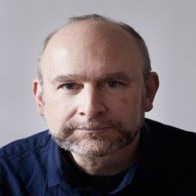
P N Singer
P N Singer is Honorary Research Fellow in the Department of History, Classics and Archaeology at Birkbeck. He has wide-ranging interests in ancient medical and philosophical writings, including in particular ancient theories of psychology, the emotions and ethics; health and illness of soul and body, and the mind–body relationship. His research focuses above all on the second-century-CE medical author Galen of Pergamon, and he is the author of Galen: Psychological Writings: Translation, Introductions and Notes (2013) and co-editor of Mental Illness in Ancient Medicine: from Celsus to Paul of Aegina (2018). He is currently pursuing a collaborative project on previously unstudied texts by Galen on the pulse, including preparing these texts for publication in English for the first time. Further interests include: Plato and the Platonic tradition; ancient practices of commentary and exegesis; ancient conceptions of time; Imperial-period texts and techniques of practical ethics (Epictetus, Marcus Aurelius, Plutarch, Seneca), and 5th-century Greek drama and performance practice.
EMERITAE AND EMERITI MEMBERS

Damien Keown
Damien Keown is Professor Emeritus of Buddhist Ethics at Goldsmiths College, University of London. His main research interests are theoretical and applied aspects of Buddhist ethics, with particular reference to contemporary issues. He is the author of many books and articles including The Nature of Buddhist Ethics (Palgrave, 1992), Buddhism and Bioethics (Palgrave 2001), Buddhism: A Very Short Introduction (OUP 2000), Buddhist Ethics: A Very Short Introduction (OUP 2020), and the Oxford Dictionary of Buddhism (OUP, 2003). In 1994 he founded The Journal of Buddhist Ethics with Charles S. Prebish, with whom he also co-founded the Routledge Critical Studies in Buddhism Series.

MM McCabe
Mary Margaret McCabe (‘MM’) is Professor Emerita of Philosophy and Fellow of KCL, and Honorary fellow of Jesus College Cambridge. MM works on ancient philosophy, on ethics and on the philosophy of medicine; she has published mostly on Plato, but also on the Presocratics, on Aristotle and on the Stoics, as well as on topics in contemporary ethics and medicine. She was Fellow of Classics at New Hall Cambridge (1981-90) then moved to the Department of Philosophy at King’s College London in 1990, where she was Professor of Ancient Philosophy from 1998 to her retirement in 2014, and thereafter Professor Emerita of Philosophy; she was Keeling Scholar in Residence and Honorary Professor of Philosophy at University College, London (2014-17) and Bye-Fellow of Newnham College Cambridge (2014-17); she is a Corresponding Member of the Plato Centre at TCD. In 2017 MM was the Sather Professor at the University of California, Berkeley, delivering the Sather Lectures on ‘Seeing and Saying: Plato on Virtue and Knowledge’, and she will deliver the Hagerström Lectures at the University of Uppsala (2024). She is a Fellow of the British Academy and was President of the British Philosophical Association (2008-12), the Mind Association (2016-17) and the Aristotelian Society (2022-23) and Honorary President of the Classical Association (2022-23). MM is the author of Plato on Punishment (1981), Plato’s Individuals (1994), Plato and his Predecessors: The Dramatisation of Reason [from the Stanford Lectures, Trinity College Dublin] (2000) and Platonic Conversations (2015). She is the editor of the Cambridge University Press series, Cambridge Studies in the Dialogues of Plato, for which her Plato’s Euthydemus is in the late stages of preparation. MM is the Chair of Trustees of the charity Philosophy in Prison, which provides and supports philosophical discussion for prisoners in the UK.

Anthony Price
Anthony (A. W.) Price is Professor Emeritus of Philosophy at Birkbeck. Anthony has worked especially on Platonic and Aristotelian ethics and moral psychology. His two most prominent books are Love and Friendship in Plato and Aristotle (1989/1997), and Virtue and Reason in Plato and Aristotle (2011). More recently he has published on Plato’s and Aristotle’s ethics in Phronesis and Oxford Studies in Ancient Philosophy. His central focus now is upon Aristotle’s conception of practical reasoning, its goals and logic, and the histories of its emergence and of its obstacles.

Anne Sheppard
Anne Sheppard is Professor Emerita of Ancient Philosophy at Royal Holloway, University of London, an Honorary Fellow of the Institute of Classical Studies and a Corresponding Member of the Plato Centre at TCD. Her research interests centre round the interaction between philosophy and literature and she also has an interest in ancient psychology and philosophy of mind, especially in Neoplatonism. Her publications include Studies on the 5th and 6th Essays of Proclus’ Commentary on the Republic (1980), Aesthetics: An Introduction to the Philosophy of Art (1987), Greek and Roman Aesthetics (with Oleg V. Bychkov, 2010) and The Poetics of Phantasia: Imagination in Ancient Aesthetics (2014). She has recently completed a translation and commentary on Plotinus, Ennead 1.8 for publication by Parmenides Press and is working on a monograph on Neoplatonic views of drama.
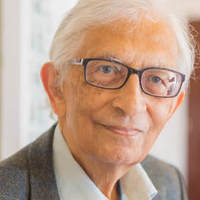
Richard Sorabji
Sir Richard Sorabji is Professor Emeritus of Philosophy at KCL and Honorary Fellow of Wolfson College, University of Oxford. Richard’s main books in 17 volumes (one at press in 2020) and 97 articles include 1200 years of ancient Greek philosophy and also its transmission first into ancient Persia, then into medieval Arabic and then Latin philosophy and on to the present. The subjects include philosophy of physics, mind and ethics, and also the philosophy of Mahatma Gandhi in India, along with two biographies, one of which has been requested for filming. He was knighted in 2014 for his foundation of the project to get translated by scholars in 20 countries the largest surviving body of ancient Greek literature, the ancient Greek commentators on Aristotle, which has in 2020 reached 114 volumes.
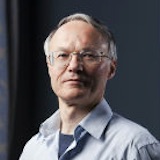
Michael Trapp
Michael Trapp is Professor Emeritus of Greek Literature & Thought and Visiting Research Fellow in the Classics Department at KCL. Most of his research circles around questions to do with the confrontation and interaction in antiquity between philosophical activity (particularly writing) and the surrounding culture. This was a central theme of his 2007 monograph Philosophy in the Roman Empire, and he has continued to pick away at it in more recent papers such as ‘With all due respect to Plato: the Platonic Orations of Aelius Aristides’ (TAPA 2020) and ‘Meeting different needs: the implied readers of the “Pythagorean” kingship treatises’ (Ktèma 2020). Plutarch, Dio Chrysostom, Lucian and Maximus of Tyre take up much of his time, but he also has a continuing concern for the many facets of the (extra-philosophical) reception of Socrates since antiquity (following on from his two edited volumes of 2007, Socrates from Antiquity to the Enlightenment and Socrates in the Nineteenth and Twentieth Centuries).
POSTGRADUATE STUDENT MEMBERS
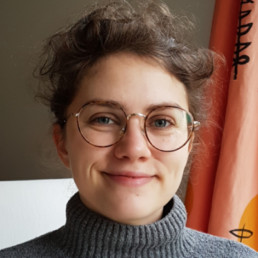
Angelica Baker Ottaway
Angelica Baker Ottaway is a PhD student in the Department of Classics at KCL. Her thesis considers the reception of Plato’s and Aristotle’s philosophy in twentieth century critical theory and biopolitics, with a particular focus on Aristotle’s Politics. She is supervised by Dr Daniel Orrells (KCL) and Prof. Miriam Leonard (UCL). Angelica received a BA in Classical Literature and Civilisation from the University of Birmingham (2014) and an MA in Classical Reception from KCL (2019). Her research interests include Ancient Greek philosophy, politics, and literature, and their receptions in European thought from the nineteenth century to the present day.
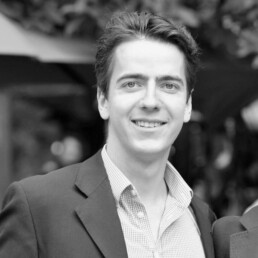
Konrad von Boyneburgk
Konrad v. Boyneburgk is a PhD student in the Philosophy department at KCL. He researches Aristotle’s distinction between kinds of pleasure as presented in the Nicomachean Ethics. He is supervised by Dr Joachim Aufderheide and Prof. Raphael Woolf. His other research interests include decision theory, especially preference change, and ethics, especially virtue ethics and hedonism. He has published on applying virtue ethics to the COVID-19 pandemic. He holds an MSc from the LSE, a BA from the University of Oxford and a BSc from Bocconi University.
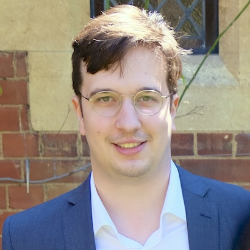
Chandler Clark
Chandler Clark studied Philosophy at King’s College London for his BA. He then received an MPhil. Stud. in Philosophy at University College London in 2018. He is currently writing his PhD thesis on Plato’s Euthydemus under the supervision of Dr Fiona Leigh and Dr Saloni de Souza. His primary research interests are in Plato’s moral and political philosophy, especially the role of philosophical conversation in public life. He also maintains broader interests in the philosophy of disability, religion and virtue ethics.
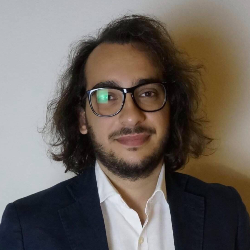
Luca Dondoni
Before joining UCL, Luca Dondoni (luca.dondoni.21@ucl.ac.uk) completed an MPhil. Stud. in Philosophy at King’s College London, studied at Collegio Ghislieri (Pavia, IT), where he received a B.A. and M.A. from the University of Pavia, and an M.A. from IUSS, and visited the Departments of Philosophy at the Central European University (HU) and at Durham University (UK). His main research interests lie at the crossroads between ancient Greek philosophy (especially later Plato and the Presocratics) and contemporary metaphysics of mind (especially consciousness), with a specific focus on the distribution of mind within the physical reality. As a Keeling-funded PhD candidate, his research is supervised by Dr Fiona Leigh (UCL) and Prof. Raphael Woolf (KCL), and aims at investigating to what extent the Timaean metaphysics may be helpful to solve some pressing concerns in contemporary (analytic) philosophy of mind (e.g., the Hard Problem of Consciousness) — on the way to a form of Platonic Panpsychism.

Lawrence Evans
Lawrence Evans received his MPhil. Stud. from UCL at the end of 2019, with a thesis on Aristotle’s function argument in the Nicomachean Ethics. He started his PhD at UCL in 2020, with a thesis centred on Aristotle’s conception of eudaimonia and its relation to human nature, primarily supervised by Dr Fiona Leigh, with addition supervision by Dr Elena Cagnoli Fiecconi and Dr Simona Aimar. Besides Aristotle’s ethics, he has research interests in Plato and in ancient philosophy more generally. He has taught a number of modules on ancient philosophy as a PGTA in the Philosophy Department at UCL. He also taught the ‘Introduction to Ancient Philosophy’ module in the UCL Summer School in Ancient Philosophy 2023. In May 2023, he was appointed as the Keeling Research Assistant in the Keeling Centre for Ancient Philosophy at UCL.

Connor Fairbairn
Connor Fairbairn received his BA in Classics from the University of Kent, predominantly studying Greek and Roman political history, eventually writing a thesis on the techne analogy in Plato’s Republic. He completed his MA in Philosophy, also at the University of Kent, with a closer focus on Ancient Greek Philosophy, completing a thesis supervised by Dominic Scott entitled ‘The Unsustainability of Plato’s Unchanging Educational System.’ Connor has since moved to King’s College London to undertake a PhD, supervised primarily by Raphael Woolf, with the working title ‘The Role of Knowledge in Ruling in Plato’s Republic and Statesman.’ Connor’s research interests primarily focus on Plato’s political theory but span to Cicero’s wider philosophical reflections and the political history of the Roman Republic and Empire. Connor has most recently worked as a Graduate Teacher in the King’s College London Philosophy department, winning the departmental Graduate Teaching Prize in 2019.
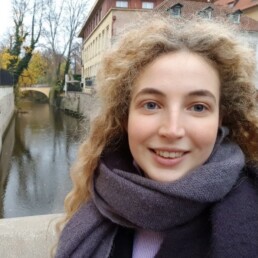
India Griffiths
India Griffiths received her BA in Philosophy from University College London (2021), with a thesis on Sartre’s philosophical use of fictional prose. She advanced directly onto the UCL MPhil programme and is currently enrolled as a second–year MPhil student, writing her thesis under the supervision of Fiona Leigh on moral degeneration in Plato’s Republic, specifically focusing on Plato’s tyrannical character. Her research interests include ancient moral psychology, the role of vice in Plato and Aristotle, mythology in ancient philosophy, and also broader interests in German Idealism and Existentialism.
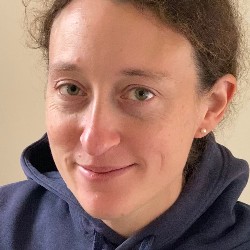
Glenda Hall
Glenda Hall received a PhD in Linguistics from the University of Cambridge before moving to the Philosophy Department at Birkbeck, where she completed her MA in Philosophy in 2014 and began her doctoral research in October 2019 under the supervision of Sophia Connell. Her research focuses on Plato’s Philosophy of Language, particularly the relationship between Platonic forms and word meanings.

Branislav Kotoc
Branislav Kotoc received his B.A. in Philosophy from Charles University in Prague (2012), and his M.A. in Philosophy from King’s College London (2013). After that, he started his PhD at King’s College London under the supervision of Prof. Raphael Woolf. In his doctoral dissertation, he is rejecting the view that Socrates’ conversations only have an instrumental value, and he is arguing that one can exhibit virtues while being in a conversation, attributing to conversation an intrinsic value. His main research interests are the dialogic form in Plato, Plato’s ethics and moral psychology, and women thinkers in ancient Greek philosophy.
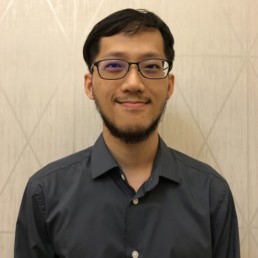
Antonio Lai
Antonio Lai received his B.A. in Philosophy from National Taiwan University. He then joined the MPhil. Stud. programme in Philosophy at UCL (his thesis was entitled: ‘How can the Concept of Immortality be Understood in Plato’s Symposium?’), working under the supervision of Dr Fiona Leigh. His main research interests are in Plato’s ethics and moral psychology. He started a PhD at UCL in September 2021 and his thesis is focused on Plato’s doctrine of ‘Homoiōsis Theōi’ under the supervision of Dr Fiona Leigh (temporarily on a remote basis).
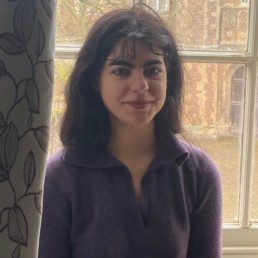
Melina Lourou Terzaki
Melina Lourou Terzaki completed her B.A. in Philosophy at KCL, and her MPhil in Classics at the University of Cambridge. She is currently a PhD candidate in the Classics Department at UCL under the supervision of Prof. Miriam Leonard, Dr Fiona Leigh and Prof. Dilwyn Knox. Her thesis looks at the role metaphorical thinking plays in Plato’s conception of wisdom.
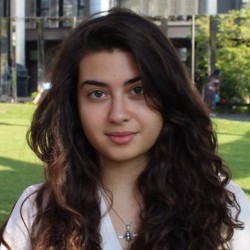
Jelena Milosavljevic
Jelena Milosavljevic is a PhD candidate in the Philosophy Department at UCL. Her thesis is on the intemperate person’s failure and the role of bodily pleasures and appetite in Aristotle’s ethics, and how these are consistent with his teleological commitments. She has wider interests in ancient moral psychology and theories of action, and is funded by the Department’s Keeling scholarship.

Alba Miriello
Alba Miriello received both her B.A. in Philosophy (first class) in 2014 and her M.A (summa cum laude) in 2015 from the University of Pisa. Her M.A. dissertation, entitled ‘The Socratic Daemon in Plotinus’ Enneades: Ennead III 4 15, Translation and Commentary’, has been published. In 2018, she received an M.A. in Philosophy from Birkbeck College, University of London, with a thesis entitled ‘An account of kinesis in Plotinus’ Nous’ under the supervision of Dr Sophia Connell. In 2019, she joined the Department of Philosophy at UCL, awarded the Keeling Scholarship for research in ancient philosophy. She is currently writing her MPhil. Stud. dissertation on the Form of the Good in Plato’s Republic under the supervision of Dr Fiona Leigh. Her main interests are Plato’s metaphysics and Neoplatonism. In 2012, she spent one year on the Erasmus programme in Regensburg (Germany), as part of her B.A.
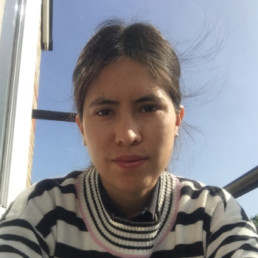
Andrea Romaní López
Andrea Romaní López (andrea.romani@kcl.ac.uk) studied for her M.A. in Philosophy at the Universidad Nacional Autónoma de México. Currently, she is a PhD candidate in the Department of French at King’s College London, supervised by Patrick Ffrench and Raphael Woolf. Her research project is on Aristotle’s Poetics and how Freud and Lacan can help us to elucidate the role of catharsis in Aristotle’s definition of tragedy. Her main research interests are in ancient Greek philosophy and tragic poetry, and the dialogue between philosophy and psychoanalysis.

Joseph Sibley
Joseph Sibley read for a BA in PPE at the University of Oxford. He also obtained the MSt in Ancient Philosophy there with a thesis entitled ‘Aristotle on Emotion and Moral Development’. He joined UCL in 2022 and is currently enrolled in the MPhil Stud. Philosophical Studies programme as a Keeling scholar. He is broadly interested in ancient ethical thought, and more particularly in the moral psychology found in the works of Plato and Aristotle.

Stephen Townsend
Stephen Townsend studied at KCL, where he received his BA in philosophy in 2019. He is currently enrolled on the KCL MPhil. Stud. in Ancient Philosophy programme under the supervision of Raphael Woolf. His research interests are ancient psychology and contemporary metaphysics. His MPhil. Stud. thesis will describe the relationships between Aristotle’s psychological theories and those advanced by his predecessors. The aim of his research is to establish the degree of originality of the psychology that Aristotle presents as his own in De Anima.
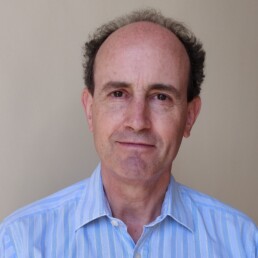
Sean Williams
Sean Williams is a PhD student in the Philosophy Department at KCL, supervised by Prof. Raphael Woolf at KCL and Prof. Jan Westerhoff at Oxford University. He is researching Pyrrho of Elis, in particular what he gained from his exposure to Indian philosophy, arguing that Pyrrho drew upon the ideas of a very early Buddhist community the Greeks came upon in Taxila in 326 BCE. Sean has degrees from Oxford (PPE 1986), Harvard (Public Administration, 2000), SOAS (Buddhist Studies, 2019) and KCL (MA, Philosophy, 2021). He is a founder shareholder of Nosy Crow Limited, Chairman of Grain Connect Limited and Chairman of Bodhi College.
